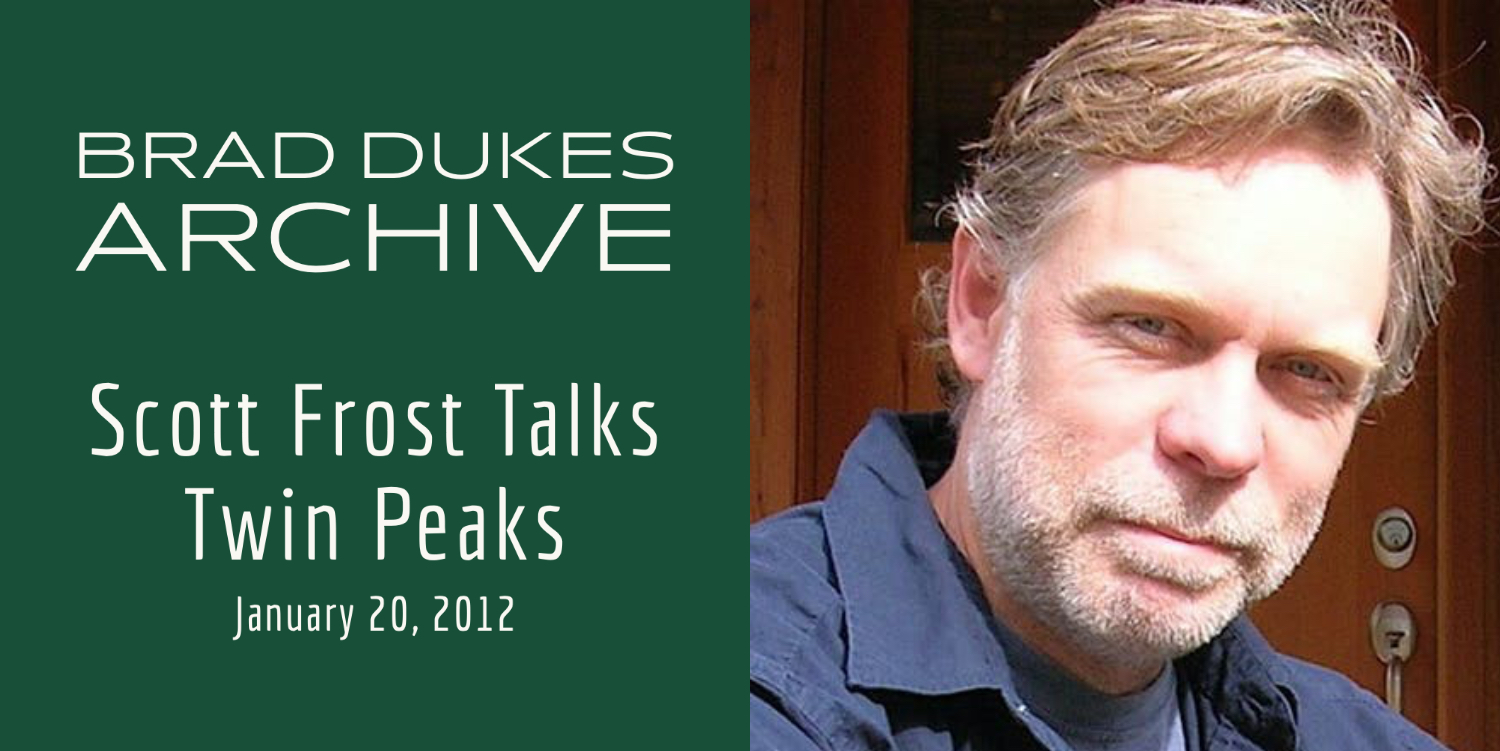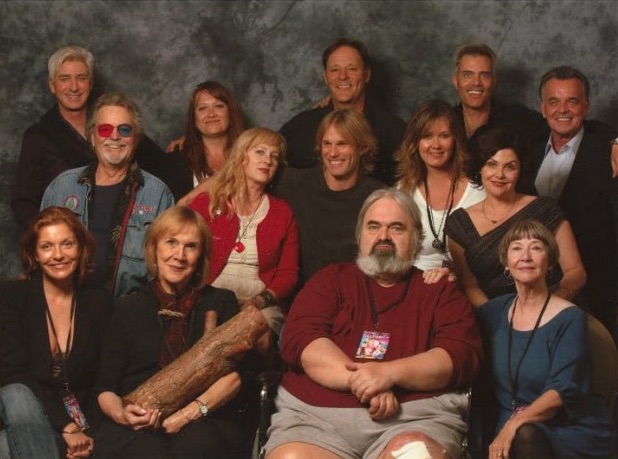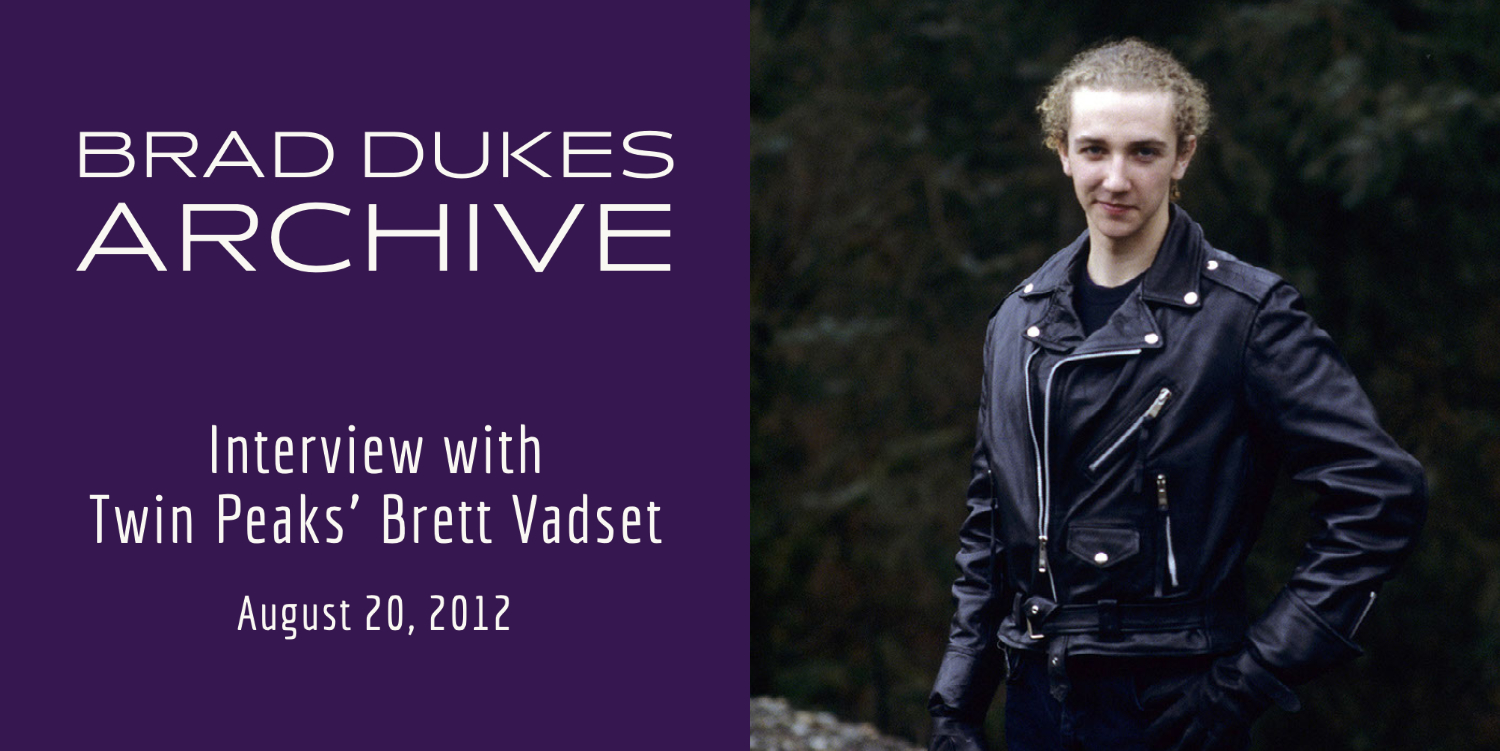Ten years ago, back in 2011, Twin Peaks fandom felt like a secret society. The show was just hitting Netflix, inviting a new generation of viewers along with lapsed fans to dive in. The Gold Box DVD had been released a few years prior, and there simply wasn’t much going on aside from a couple of blogs and forums dedicated to the show. Twin Peaks felt “dead as a doornail” outside of this impassioned bubble. I took it upon myself to interview anyone from Twin Peaks that would talk to me. I wanted to immerse myself in that world, and see what was left to be gleaned. What might be a few layers under the surface. This mission endured for over a year at full speed, until eventually, I ditched my blog and put all my efforts into what would become “Reflections: An Oral History of Twin Peaks.”
For the first time in a long time, select interviews from this era will be re-published (and in some cases re-mastered) over the next few weeks, at this wonderful site that carries the torch of Twin Peaks fandom. I sincerely appreciate and admire the great work Steven Miller is producing here, and am happy to be a part of it!
INTRODUCING SCOTT FROST
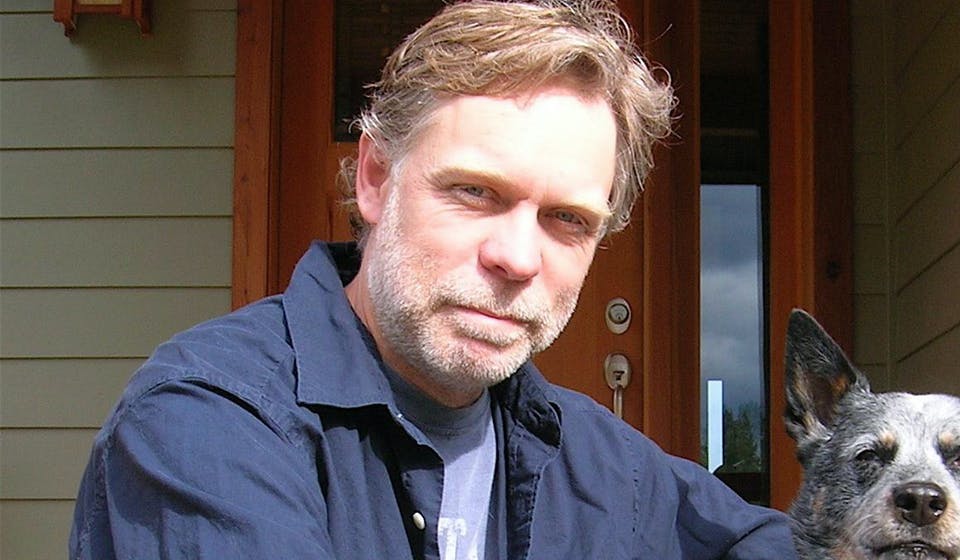
This interview was originally published on January 20, 2012.
I recently had the chance to chat via telephone with Scott Frost, author of “The Autobiography of F.B.I. Special Agent Dale Cooper: My Life, My Tapes” as well as the screenwriter for the Twin Peaks episodes Drive With a Dead Girl (Episode 2008 / #15) and Double Play Episode 2014 / #21). Scott graciously shared a few stories surrounding his work on the show and his experiences in writing for the groundbreaking series.
BD: Hi Scott! To start out, what was your first exposure to Twin Peaks, and what were your initial reactions to the material?
SF: I think the very first exposure was I read a draft of the Pilot script (that) Mark and David had written. It was probably the same year they made the pilot I’m assuming, in fact probably just a month before they started shooting. It was interesting because the script on paper read flawlessly, but translating what you read to what you saw on the screen with the pilot was a huge surprise. It came alive on the screen in a way; Between Mark and David they brought what was on the page to the camera in a way I couldn’t imagine, it was quite something.
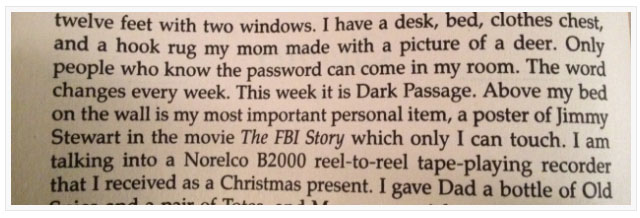
BD: When did you begin your role in writing material for Twin Peaks?
SF: I wrote the book first I believe, if I remember.
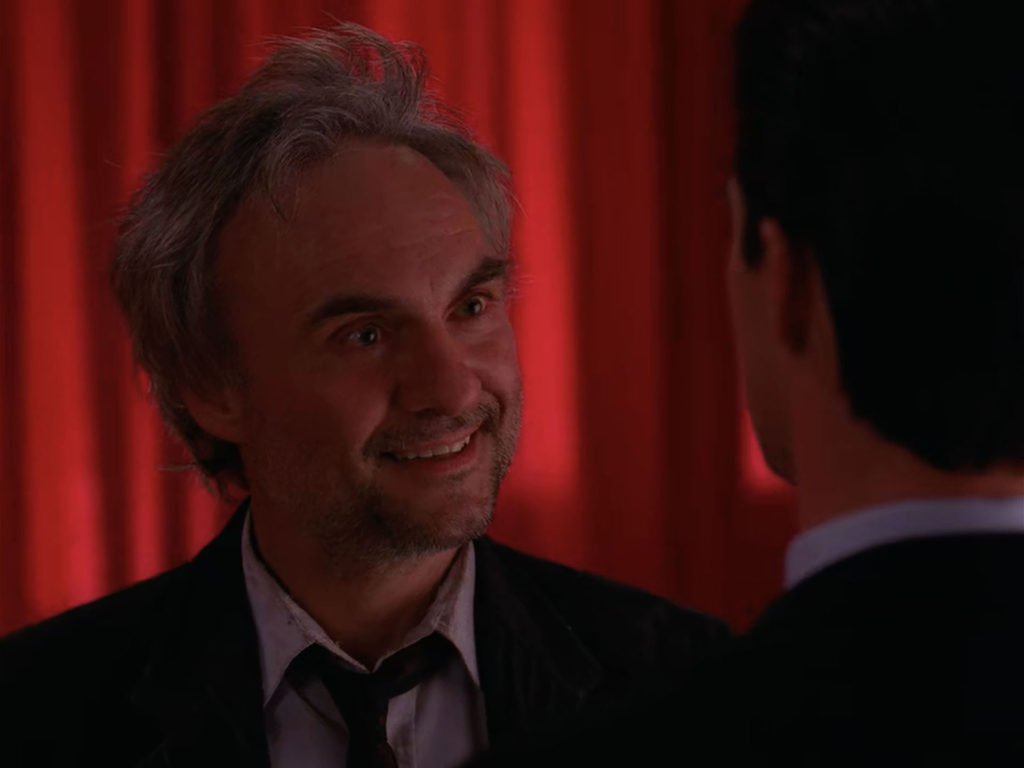
BD: I find that interesting, given how detailed Cooper’s back story with Windom Earle was in your book.
SF: I guess it was one of the storylines that Mark and David and company had figured out at some level, even early on. I don’t remember how plotted it really was. I was given reasonably free reign on the book with a request to touch on a few things here and there. I had actually forgotten Windom Earle was in the book to be honest with you! (laughing)
EPISODE 2008 (#15 OF SEASON TWO)
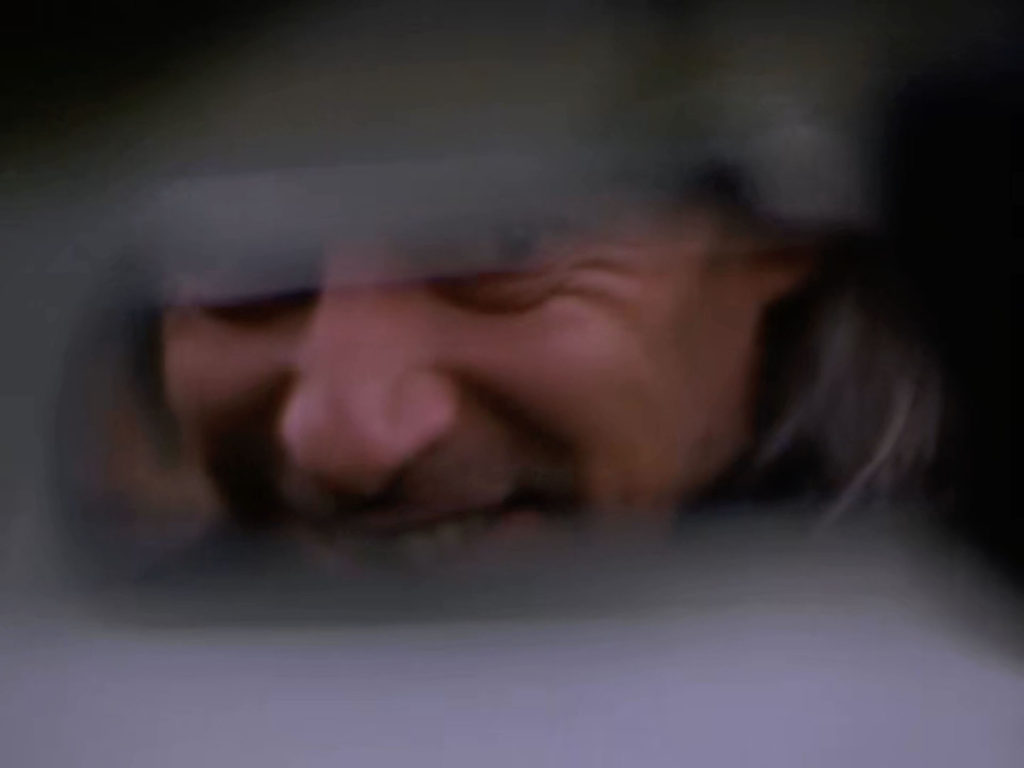
BD: So the first episode you wrote for Twin Peaks was Episode 15, which is actually the first full episode of Twin Peaks with the killer of Laura Palmer revealed. How did you feel about the mystery being revealed and what was that like kicking off a new era of the town?
SF: Well the first season I had actually worked on the set, so I was living with it for 12 hours a day that first season, so I had my own notions of who the killer might be, but I didn’t know who it was.
I think I found out … let’s see was called up to the office and I was told you’re the fifth person to know this or something like that – and I guess it was a huge mystery for everyone and to this day I don’t actually know how worked out Mark and David had that part to begin with because the process of working on a show is such a free fall that you’re kind of inventing as you go along to a big degree. It didn’t change my perception because it was all pretty twisted to begin with! (laughing) The more the merrier!
BD: I didn’t know you worked on the show during the first season, what was your role?
SF: I worked on the set, I was a production assistant and I had never worked on a set before, so I jumped at the chance to do that just for the experience. I thankfully didn’t have to do it too many times afterward. The crew goes through a lot, it’s a lot of work.
CONNECTIONS IN TWIN PEAKS
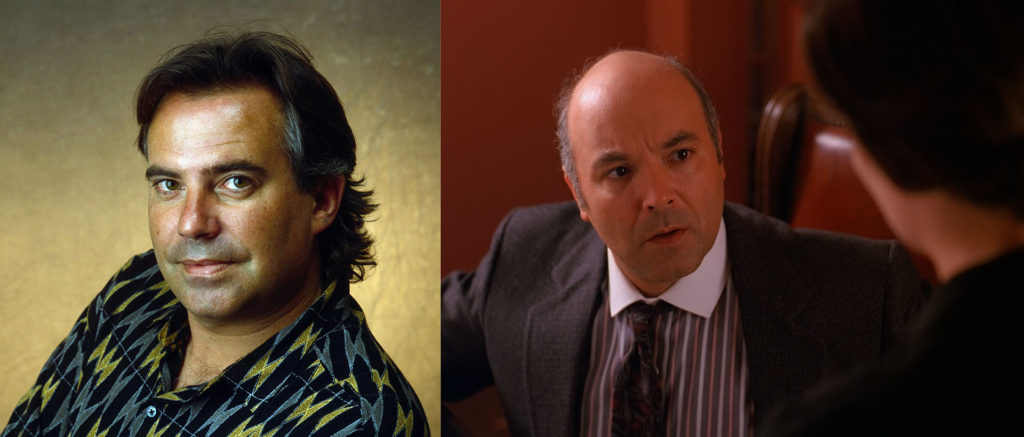
BD: Did you know many people involved with the show outside of your family?
SF: I went way back with Bob (Engels), let’s see who else? Don Amendolia – I didn’t know him as well but I knew him through my family. My father (ed.-Warren Frost, a.k.a. Doc Hayward) was in the theatre in the Twin Cities. I go quite a bit of ways back with Bob. I was in ninth grade and he was at the University, a student of my father’s or something like that. We went way back.
BD: With you and Mark both being writers, did you collaborate together much growing up?
SF: I didn’t really write when I was young. Mark wrote from the first time he was handed a crayon, practically. I studied art at school, I was a photographer and I approached everything from the visual direction and thought for a long time I would go into cinematography and ultimately began writing when I was in my early 20’s. I was out of school. The only writing I ever took was Freshman composition at the University and I think I got a D! They didn’t want me back.
WRITING COOPER’S AUTOBIOGRAPHY
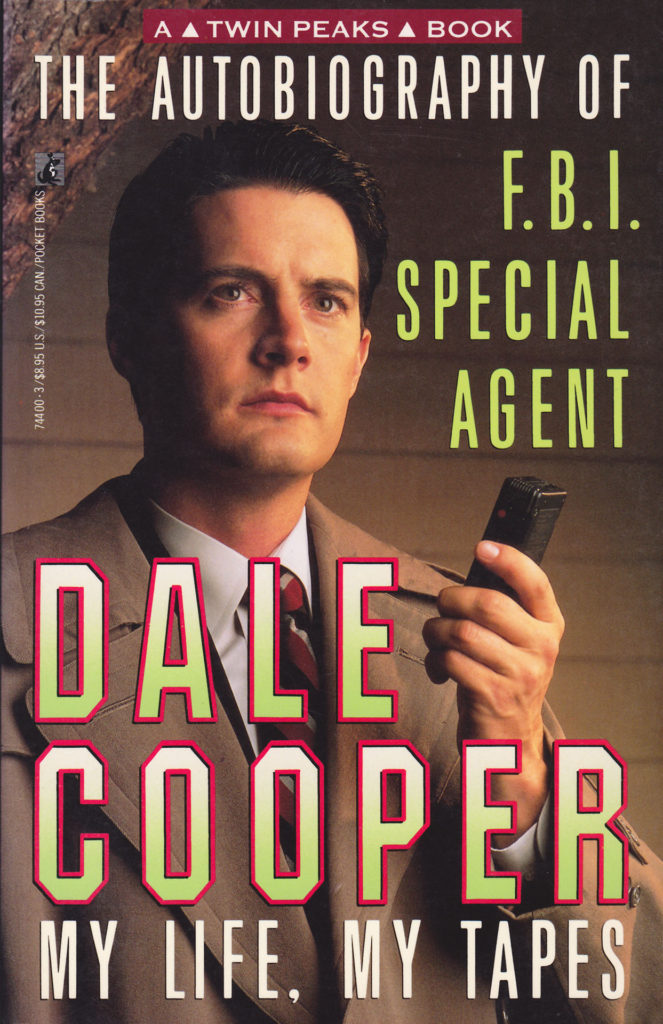
BD: I never would have guessed! So you mentioned you had free rein with the Cooper book, but what influences did you draw on?
SF: David had a few details, but we had a breakfast one morning as I remember and Cooper was in one sense everybody’s alter-ego, but specifically David’s in a sense. But probably, I wrote more about Cooper than almost anybody with the book and the script for the cassette, Diane I think.
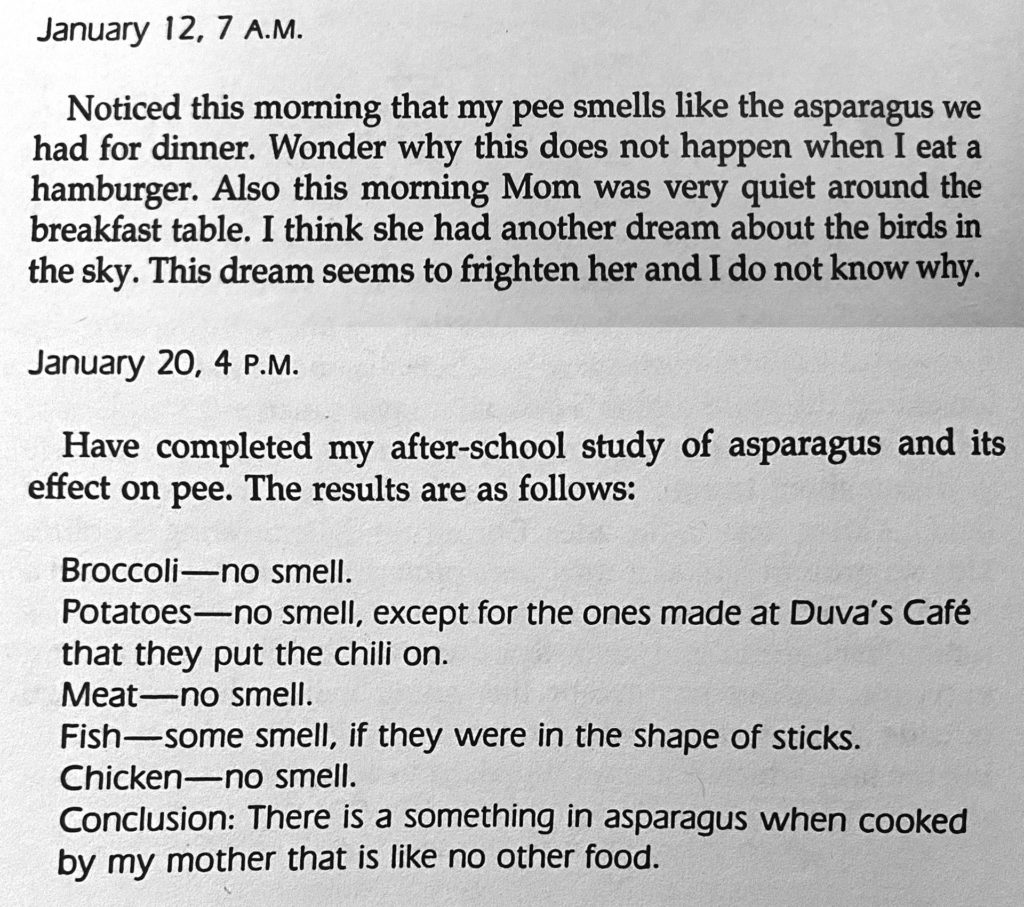
So, but getting background from David, would be like, I want him to do an experiment with asparagus (laughing) and that’s the direction David would give you, and then one day I went to Philadelphia pondering where he might have grown up and spent a day at the FBI academy. I think I had 30 days to write it. It was an insane amount of writing to do in 30 days. It was kind of pure panic!
BD: I am curious, do you remember when you wrote the book?
SF: Hmm … it was after the first season, it was after the Laura Palmer book and it happened so quickly I couldn’t say. It was sometime during the hiatus between the first and second season.
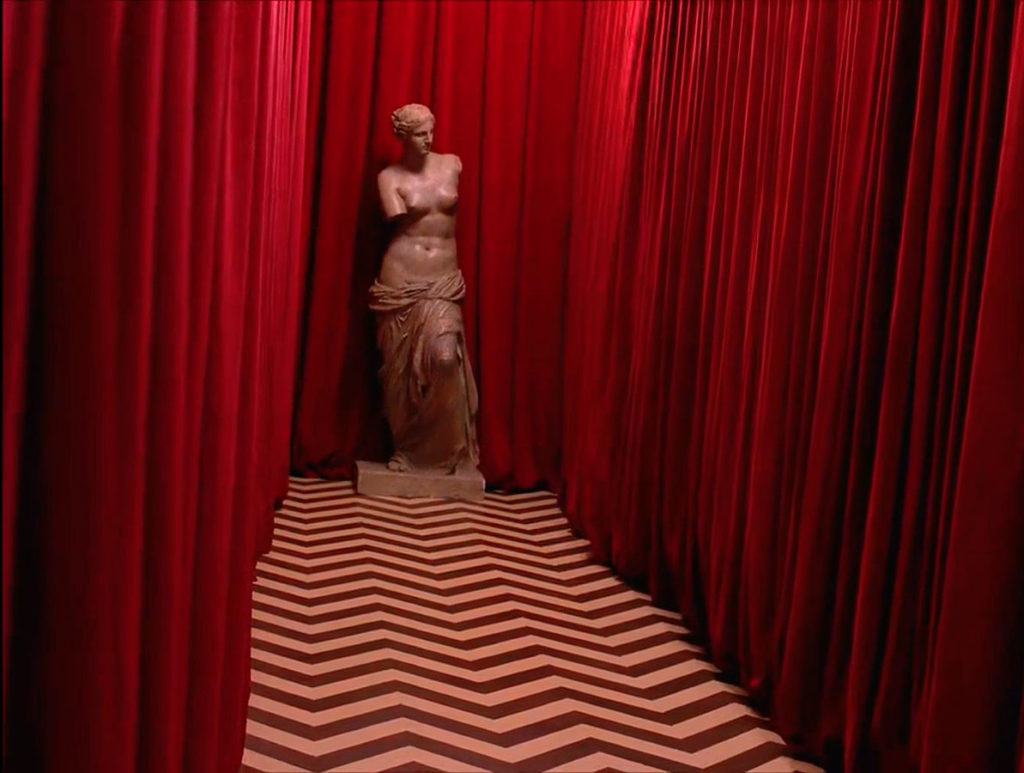
BD: “My Life, My Tapes” has some very dark overtones with Cooper experiencing quite a few tragedies throughout his life, it sets such an ominous tone and I’m curious if you knew that he would ultimately end up trapped in the Black Lodge while writing it?
SF: I had never even heard of the Black Lodge when I wrote the book. I’m still not sure what the Black Lodge is! So, there you go.
BD: That’s the great thing about it! It means different things to different people. But the tone of the book definitely felt like it’s leading somewhere dark.
SF: He projected in a sense a normal sort of presence as an F.B.I. agent until he opened his mouth and then you realize he’s anything but normal. The foundation for the whole show was darkness. I think any good drama of any kind, that’s the basis for it is tragedy.
BD: So writing the book, were you given any requirements to put in?
SF: If I remember correctly Mark had given me the storyline of Windom Earle, it was a foundation. There was very little editorial direction once the book was done. There were a few little changes to try to adjust it to what might or could happen on the show. It was really just a version of this boy’s life.
BD: Did you use any personal stories that had happened to you? There are quite a few unique and hilarious stories throughout the book.
SF: As I remember there are a few, but I’ll deny it all!
CONTINUING TWIN PEAKS
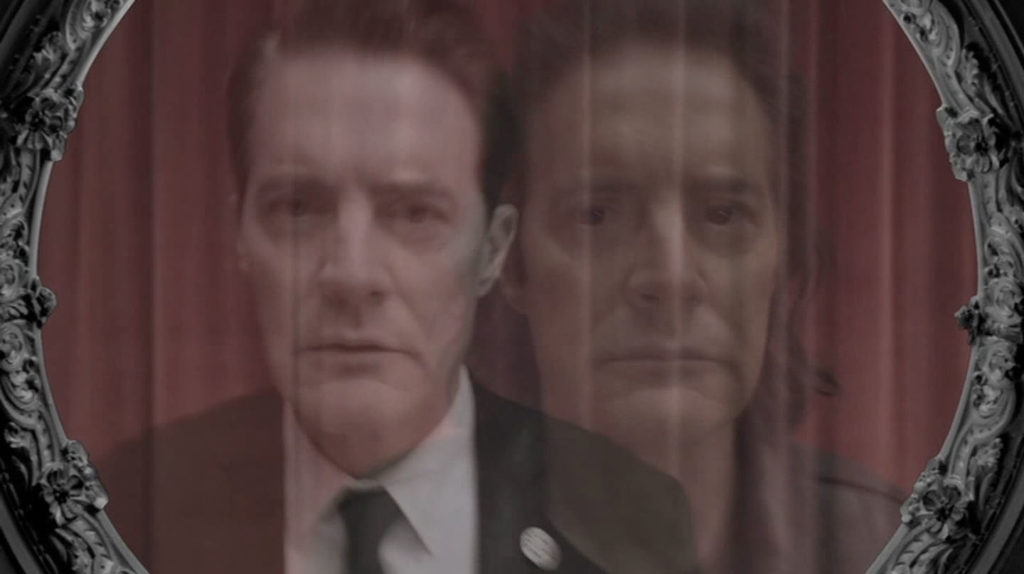
BD: Fair enough! As a writer for Twin Peaks, have you ever had any ideas or desire to continue the story from where it left off?
SF: Well actually I would have been surprised if it had continued. For me, the strength of the show was the core sense of ominous violence that can exist within a community and I think it got a little too crazy to work as a television show ultimately, for a large audience. It spun out of that. That core got lost and at times, kind of goofy and fun. I think the big thing was that it was the way everyone wanted the show to be written, and not the way everybody thought it might turn into a long-lasting television show. So in that sense I think it had its moments.
I think I remember talking to Mark once and originally he and David thought it would only be a seven episode series about a murder that happened in a little town. I don’t think there was a big expectation it would continue beyond that half season and suddenly it’s the talk of the nation, and I think that caught everybody by complete surprise. To revisit it, for one you’d have to figure out a way to get Cooper out of the Black Lodge or the door knob, or wherever he is! For me, for it to work I think you’d have to bring it back to the quality you saw in the pilot and the best episodes.
EPISODE 2014 (#21 OF SEASON TWO)
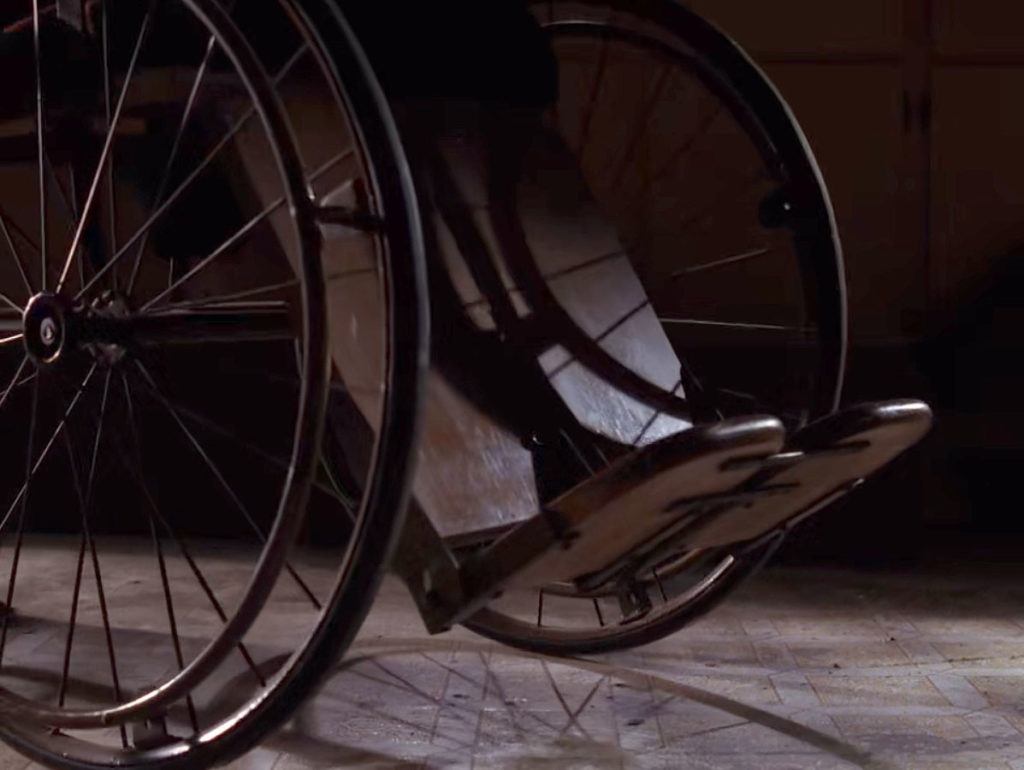
BD: The second episode you wrote was in the middle of the second season where many fans think that the show had stalled with a few crazy storylines and new characters. Was it different at all to approach the show with such a different dynamic at this point?
SF: Probably, or at least parts of it felt different. As I remember Uli Edel directed that and I think one of the things I did like about that episode is the scene when Leo sort of came back to life with the ax and the wheelchair being pushed across the room – but yeah, you could say it was a little bit different because everyone was a little more practiced at it.
At the same time it’s an awfully difficult thing where a show is based on the premise of a girl being killed and when you solve that you’ve got a big hole to fill, and that’s hard to do.
So I think the choices that were made were the ones that entertained Mark and Bob and Harley and David and everyone else kind of got their marching orders and the studio be damned. When else do you get the chance to stick your thumb in the eye of the network?
LOOKING BACK AT TWIN PEAKS
BD: Totally! So here we are now 20 years later and the show is still recognized and celebrated as a truly influential piece of work. How does it feel to you looking back on it?
SF: It’s kind of frankly amazing to me that people still love it. It will invariably come up in conversation when people hear my history whether it be someone that adores it or someone who goes, What the hell were you thinking in the second season??!!! That kind of thing, and you know it’s always kind of fun to be involved with something that caught the eye of the country. Particularly today because I don’t know if t.v. can do that much any more except occasionally unless it’s on Showtime or HBO or cable. It was like the network handed the keys of the asylum over to the writers, and the result was Twin Peaks!
BD: I’m curious if you’ve seen Twin Peaks – Fire Walk With Me or if you had ever read “The Secret Diary of Laura Palmer?”
SF: I never read the book and I don’t know if I’ve ever actually seen all of Fire Walk With Me to be honest. I have some vague memories but I’m not sure if I watched the whole thing.
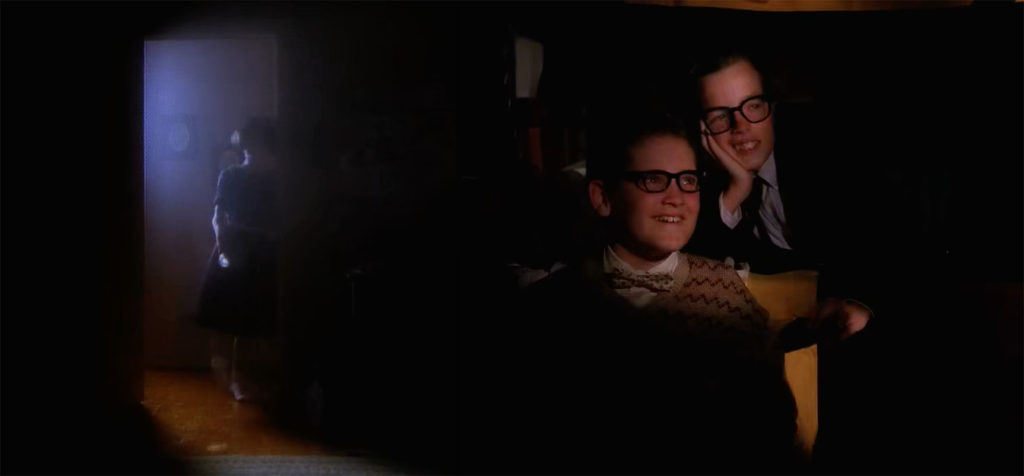
BD: Do you have any favorite scenes from the show?
SF: It’s my scene, but I always liked the Horne Brothers in jail dreaming about Louise Dombrowski doing the flashlight dance. It’s one of those moments Caleb (Deschanel) did really well and I think it was the episode after the first one I wrote where Leland kills Maddy, it was an extraordinary hour of television. That one just left me speechless, that scene in the living room cutting back and forth between Cooper and the club, that was the kind of television Twin Peaks could be when it was really good. I knew the story and everything that was going to happen and I saw that and I was left kind of shaken. I can’t remember ever having that experience with a television show, before or since, but (it’s) one of those moments that happened on Twin Peaks that will never be repeated.
BD: Are you a fan of many t.v. series these days?
SF: You know, I don’t really watch. I can’t remember the last time I watched a network drama. I enjoyed The Sopranos and thought Deadwood was amazing, but the things that are on now. I just don’t have patience. Too many damn commercials now too! (laughing) It drives me crazy.
I think the difficulty of someone who’s worked in the business the production end my problem is I know what it’s like inside that arena and I know what it can be like when it’s good. When it’s not good I have very little patience for it, but I’m not sure what constitutes good. Television can be fabulous but its a very hard medium to do well I think because demand and production are so tough, it’s exhausting. I have a love/hate affair with t.v., a little like that Groucho line I don’t care to belong to any club that will have me as a member. (laughing) I’d rather be sitting home writing a book! So that’s what I do.
Many many thanks go out to Scott for his time and insight into his work on Twin Peaks. Please stay tuned, more interviews are en route!
Discover more from TWIN PEAKS BLOG
Subscribe to get the latest posts sent to your email.

